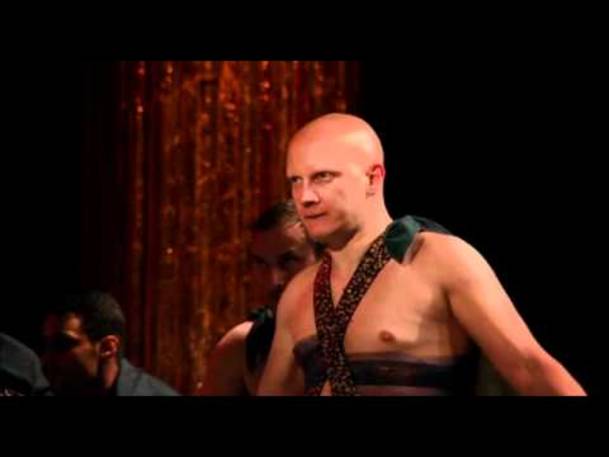


Italy submitted Cesare Deve Morire [Caesar Must Die] for consideration as a best foreign language film nominee to the Academy of Motion Picture Arts and Sciences. Paolo and Vittorio Taviani’s new release Caesar Must Die has already won the Golden Bear award for best movie at the Berlin Film Festival. Now it’s the Academy’s turn. The five nominations for the best foreign films will be announced this January. The masters of Italian cinema have told us compelling stories while successfully marrying current events and history. The visual poetry of their films is especially evident in Allonsanfàn, where they explore the life of a former revolutionary in early 19th century Italy, in Padre Padrone [Father and Master], the autobiography of Gavino Ledda, a shepherd from Sardinia who becomes a philologist, and in their more recent films based on Pirandello’s short stories such as Tu Ridi! [You Laugh] and La Masseria delle Allodole [The Lark Farm], an international film that tackles the Armenian genocide. Their latest work is an inspired artistic journey that motivated the directors to take a chance once again. The film revolves around inmates in a Roman prison who perform Shakespeare’s Julius Caesar.
We asked the Taviani Brothers to tell us about this experience.
Once again, fate was on our side. The first time, we came across Gavino Ledda, the shepherdturned- linguist who we featured in Padre Padrone. In this case, fate materialized in the voice of a dear friend who led us into a world that we knew only indirectly through American films. The location was very different; it was the Rebibbia prison on the outskirts of Rome. The first day we walked in there we could feel the contrast between the obscurity of a life of imprisonment and the energy of a cultural, even poetic, event. We met the prisoners, men who had been involved with the mafia, camorra, and ‘ndrangheta. They owned the dramatic strength of truth and knowledge as actors—a talent stemming from their innate qualities and the hard work of their wise director, Fabio Cavalli.
Why did you choose Shakespeare?
We didn’t think of doing anything else. Our suggestion to do Julius Caesar came from a need. These men were answering for a past, far away or recent, of guilt and misdeeds, of forgotten values, of broken human relationships. In Julius Caesar there are great relationships that tie men together or rip them apart, friendships and betrayals, power, freedom, and doubt. Let’s not forget crime and murder. These two worlds somehow reflect each other.
How did the casting process go? The actors are prisoners in a maximum security penitentiary. The only detail worth mentioning is that Zaza` Striano, who starred in the role of Brutus, has served his sentence and is now a free man. We told the others to use a fake identity if they wished to protect their privacy We were astonished when we realized that they all vehemently wanted to use their real names, the names of their fathers and mothers, and the places they came from. Who knows, maybe being in the film was a way to remind the world that they were still around yet engulfed by the prison’s silence. They all stood in front of the camera, and with great intensity we got to know them, one by one, and heard their sorrowful, furious, and emotional truth.
And you let the prisoners act Shakespeare in their own dialect….
One day, by chance, we saw six or seven prisoners sitting around a table, reading our screenplay, and writing. Some of the actors were translating it into their own dialect— Neapolitan, Sicilian, Pugliese. They were helped by their fellow prisoners who were not in the cast. We realized that the dialectical distortion of the lines did not weaken the serious tone of the tragedy but rather it gave them an edge.
What was it like working with the prisoners?
We became friends with the actors, as we always do. “Don’t get too close,” an agent told us at the beginning. I know them, and at times I felt pity, friendship…and then with great effort I said no. I resisted. I reminded myself of those who suffered more than the prisoners: the victims and their families. The truth is that the day we finished shooting, said goodbye, and left the prison and the actors for good was very moving. On the way up the stairs to his cell, Cosimo Rega-Cassio raised his arm and shouted: “Paolo! Vittorio! From tomorrow onwards, nothing will be the same!”
Source URL: http://newsite.iitaly.org/magazine/focus/art-culture/article/fratelli-taviani-italian-cinema-its-best
Links
[1] http://newsite.iitaly.org/files/caesar-must-die-trailer